China’s Korea envoy accuses US of ‘using’ tensions
4 min readPARIS: China’s ambassador for the Korean peninsula on Friday accused the US of “using” regional tensions to reinforce an anti-Beijing alliance, after weeks of mounting rhetoric and missile tests by Pyongyang.
“We are concerned about the US’ intention to use Korean peninsula issues as a tool for containing China,” Special Representative Liu Xiaoming told AFP in Paris following a tour of European capitals.
“It’s part of their Indo-Pacific strategy… to gang up allies, to strengthen their alliance with (South Korea) and Japan,” he added.
Tensions have been rising over recent weeks across the Korean peninsula, with the North carrying out a string of missile tests while the South and its US allies have run large-scale military drills.
China ally Pyongyang said Friday it had successfully tested a solid-fuel ballistic missile, a technology offering a far less predictable nuclear launch capability.
In September, leader Kim Jong Un said the North’s status as a nuclear power was now “irreversible”.
“People focus on the launches and nuclear tests of the DPRK, but they ignore the reason why they are doing this is a lack of a mechanism, a security structure” to guarantee peace on the peninsula, Chinese envoy Liu said, using an acronym for the North’s official name.
For their part, the US and Seoul point to Kim’s order to his army earlier this year to step up preparations for “real war” as justification for their own drills.
China pushes for a “dual-track” approach to ending Pyongyang’s nuclear drive, saying world powers should offer relief from UN Security Council sanctions in exchange for concrete disarmament steps.
Liu complained that North Korean gestures during the Trump administration had not been met with such action from Washington.
“The message sent to the DPRK is still pressure, sanctions, confrontation, so that made dialogue impossible,” he said, casting doubt on the “seriousness” of US commitment to denuclearisation.
‘Strategic independence’
After talks in capitals including Berlin, Brussels and Paris, Liu said European leaders should “persuade Americans to address the security concerns” of North Korea.
His call came days after French President Emmanuel Macron reiterated his ambition of “strategic independence” setting Europe apart from both the US and China as he returned from a visit to Beijing.
Macron’s comments were met with outcry in other European capitals and in Washington, following a year in which the continent’s dependence on the US for its defence has been starkly underscored by Russia’s invasion of Ukraine.
“We appreciate the independent strategy by some of the European countries,” China’s Liu said. “I think it serves the interests of Europe.”
With China’s ambassador already back in Pyongyang after years of closed borders due to Covid, those European nations who previously had missions there “hope they can reopen the embassies and start exchanges with the DPRK,” he added.
‘No nuclear threats’
Liu said that Russia remained a reliable partner pushing for denuclearisation in Korea despite Moscow’s own nuclear sabre-rattling during its invasion of Ukraine.
“No threat of use of nuclear weapons” was China’s “consistent position”, he said.
Nevertheless, “China and Russia share a lot with regard to the Korean peninsula. We all work for peace and stability,” he added.
Liu referred to official denials when asked whether reported North Korean arms deliveries to Russia in support of its invasion of Ukraine posed a problem for peace efforts on the peninsula.
Asked about a recent Financial Times report that Hong Kong- and Macau-based businessmen were smuggling oil into North Korea in defiance of UN sanctions, Liu said that China is “a responsible member of the (UN) Security Council” and “we certainly carry out our obligations fully” to enforce import restrictions.
On North Korean overseas workers – an economic lifeline for the regime barred under another UN resolution recently underlined by the US, South Korea and Japan – he said that “there’s no more such cases (in China)… that issue has been resolved”.
Liu also acknowledged that North Korea is “faced with some difficulties” in its food supply after reports of shortages and a February call from Kim to up grain production, although he insisted the problems were “a result of sanctions”.
For the latest news, follow us on Twitter @Aaj_Urdu. We are also on Facebook, Instagram and YouTube.

















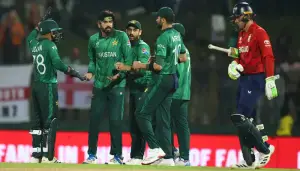
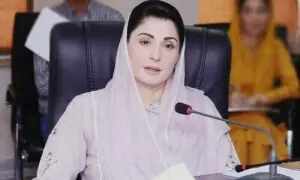
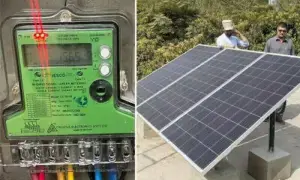
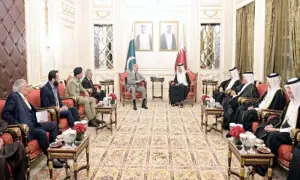
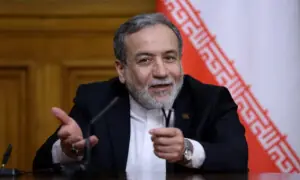
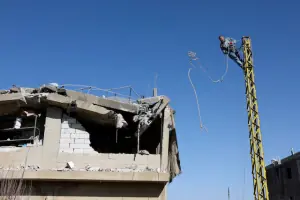

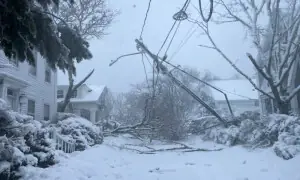
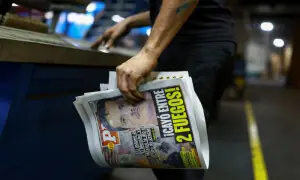
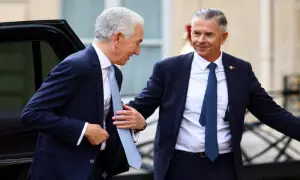
Comments are closed on this story.